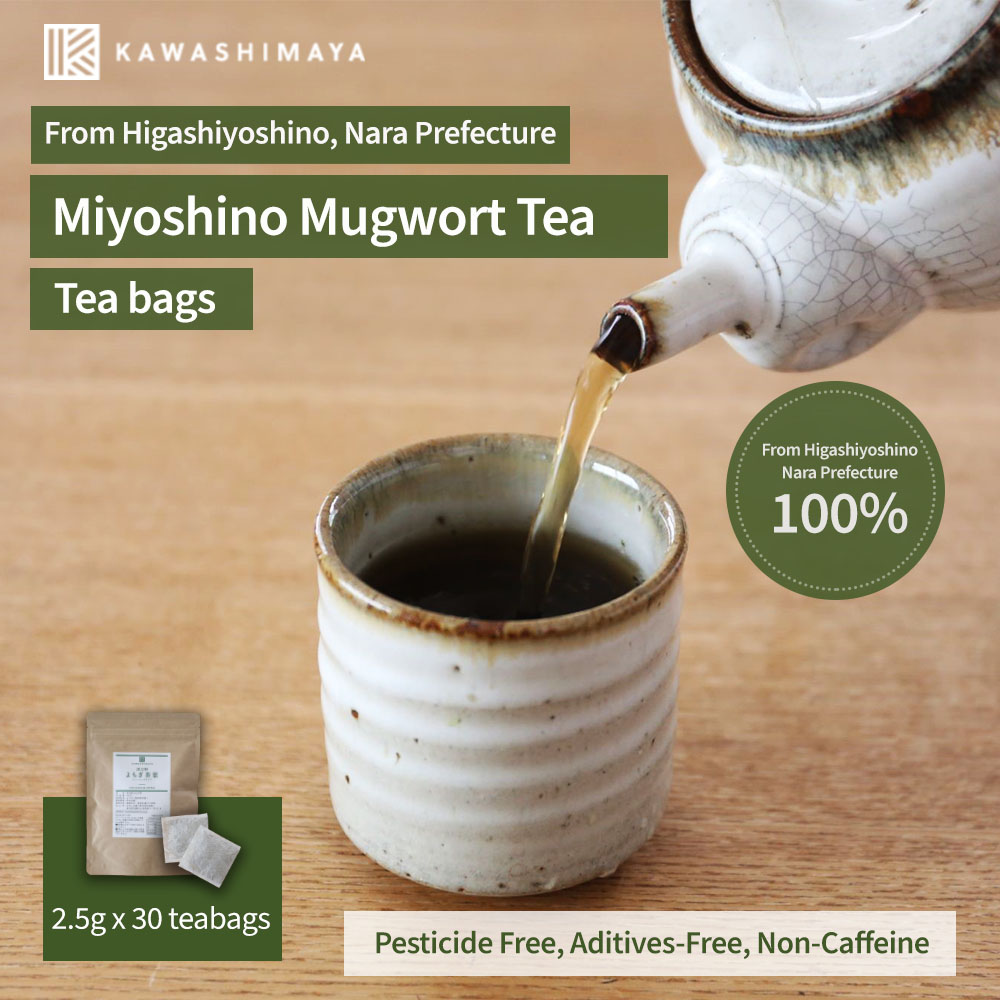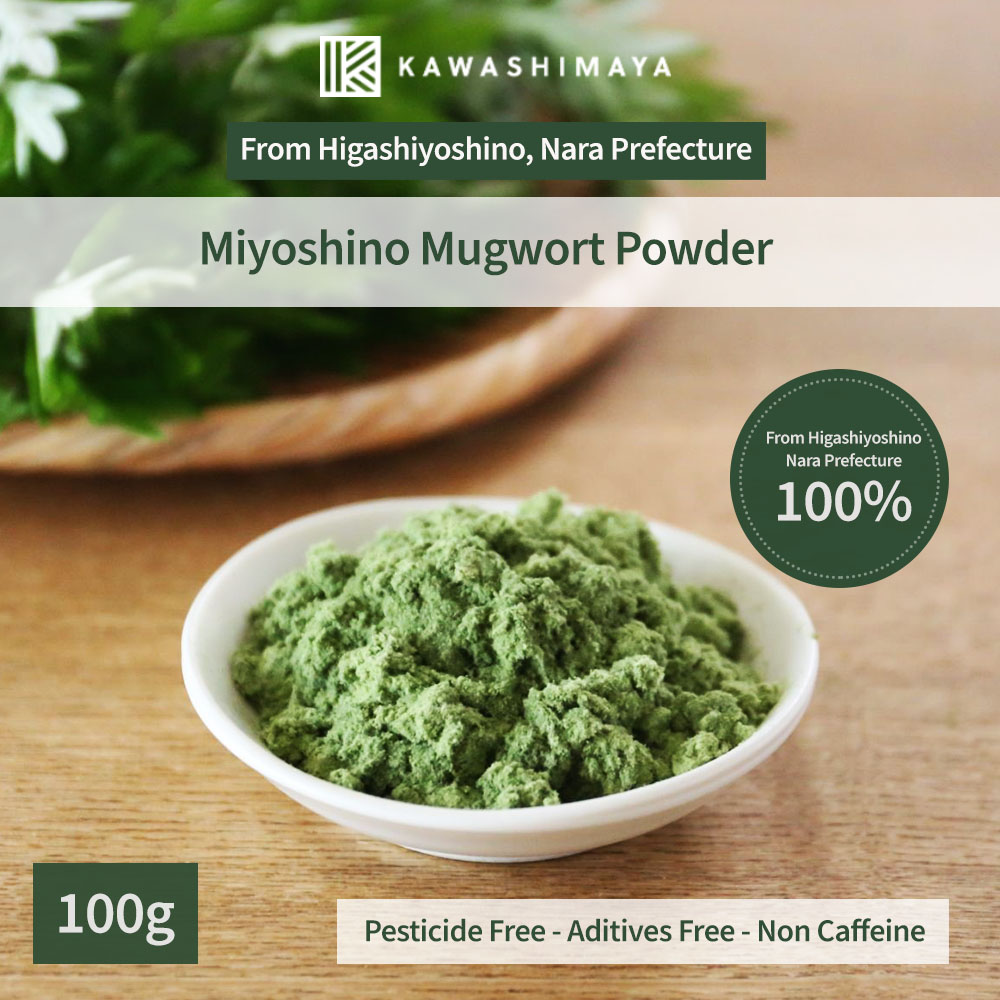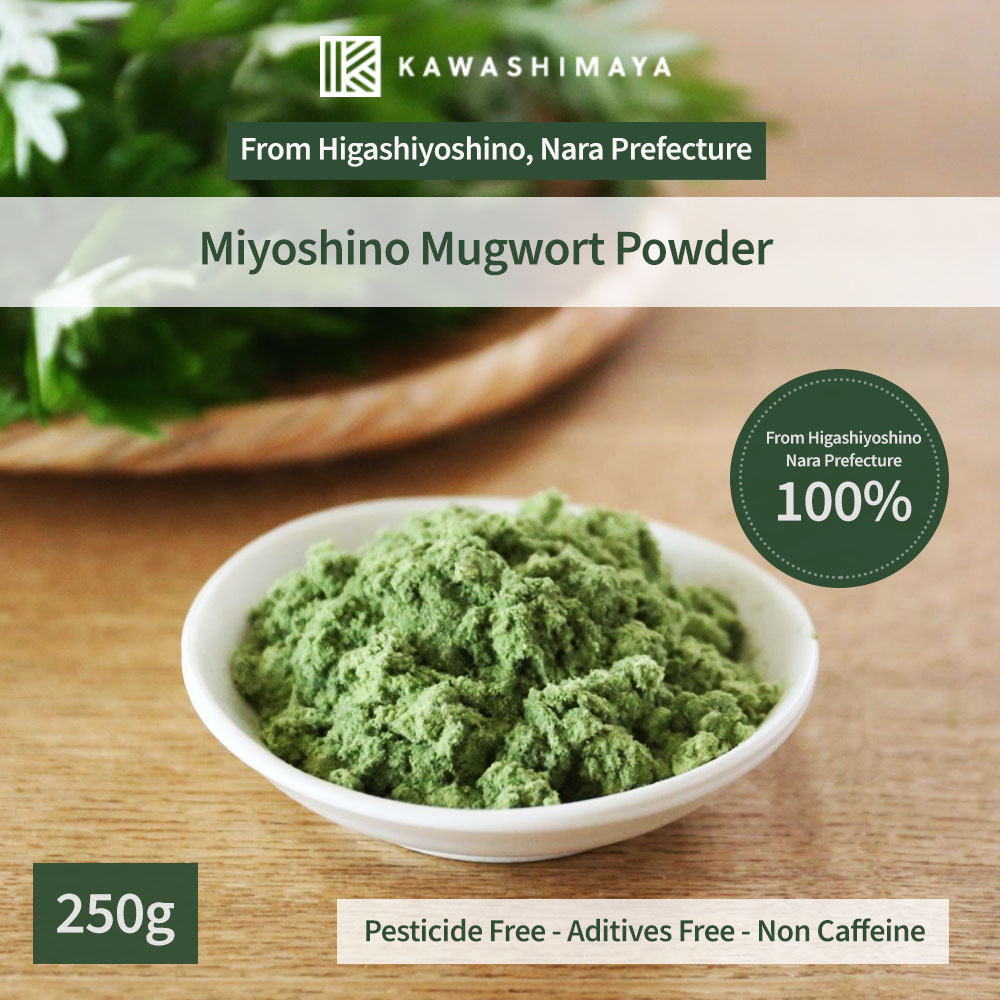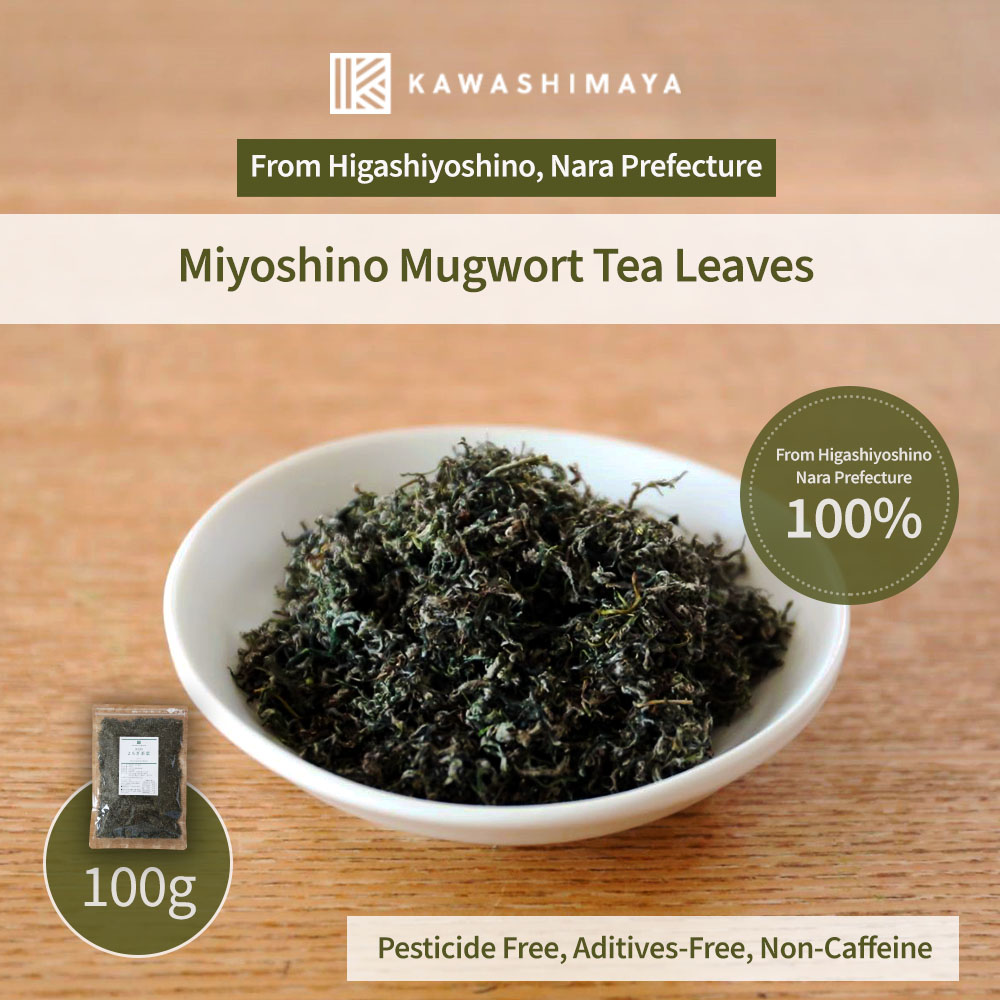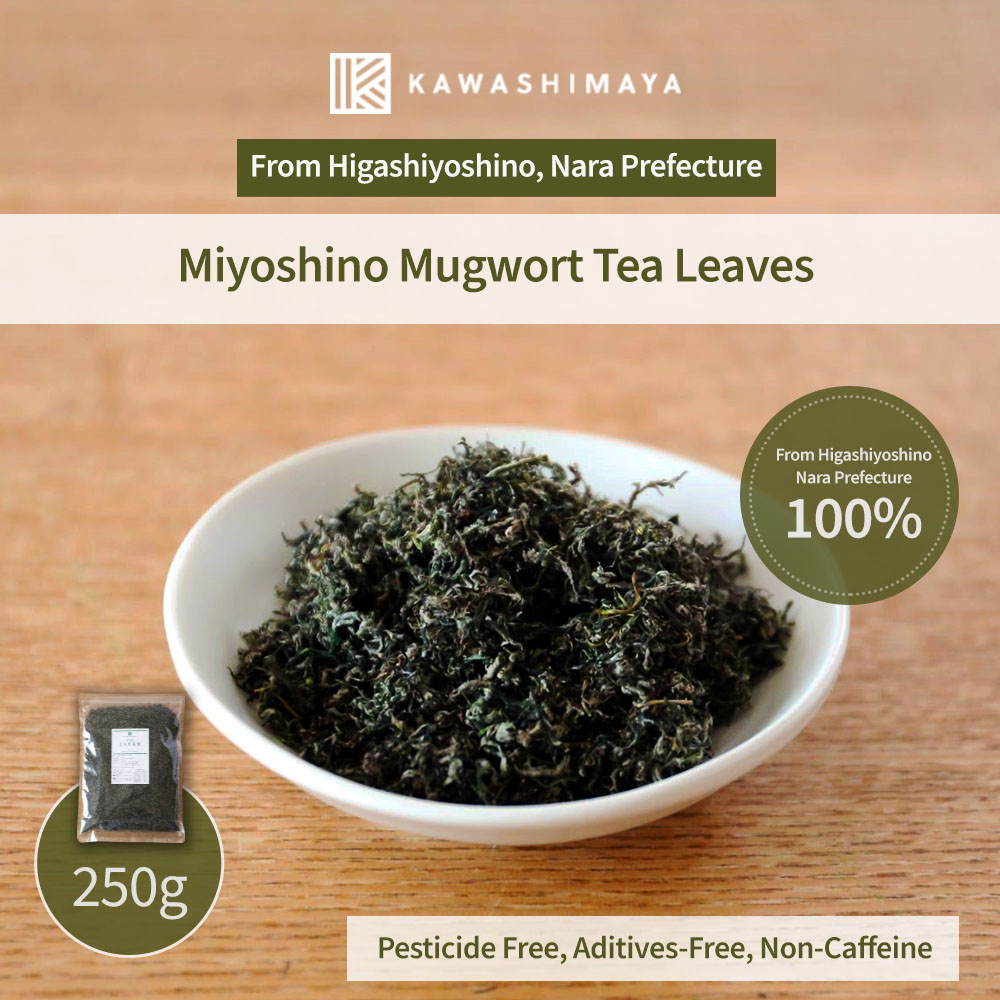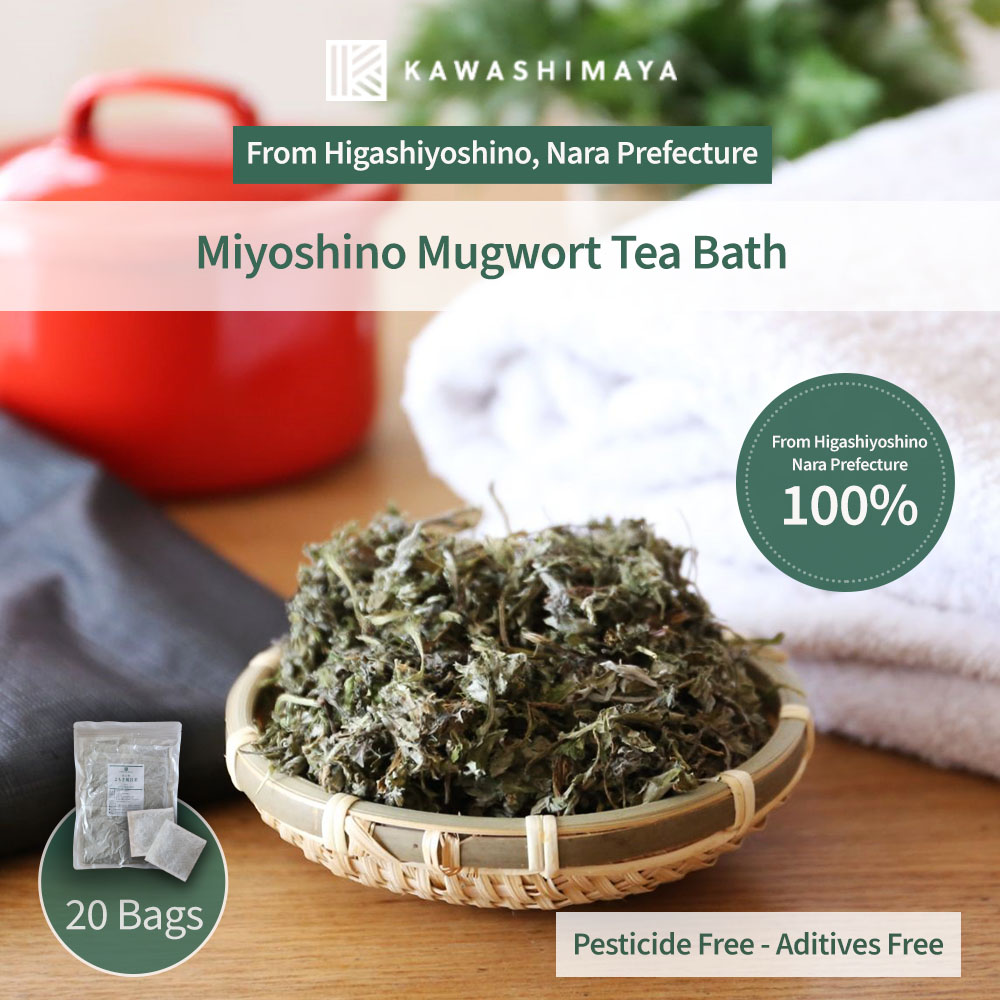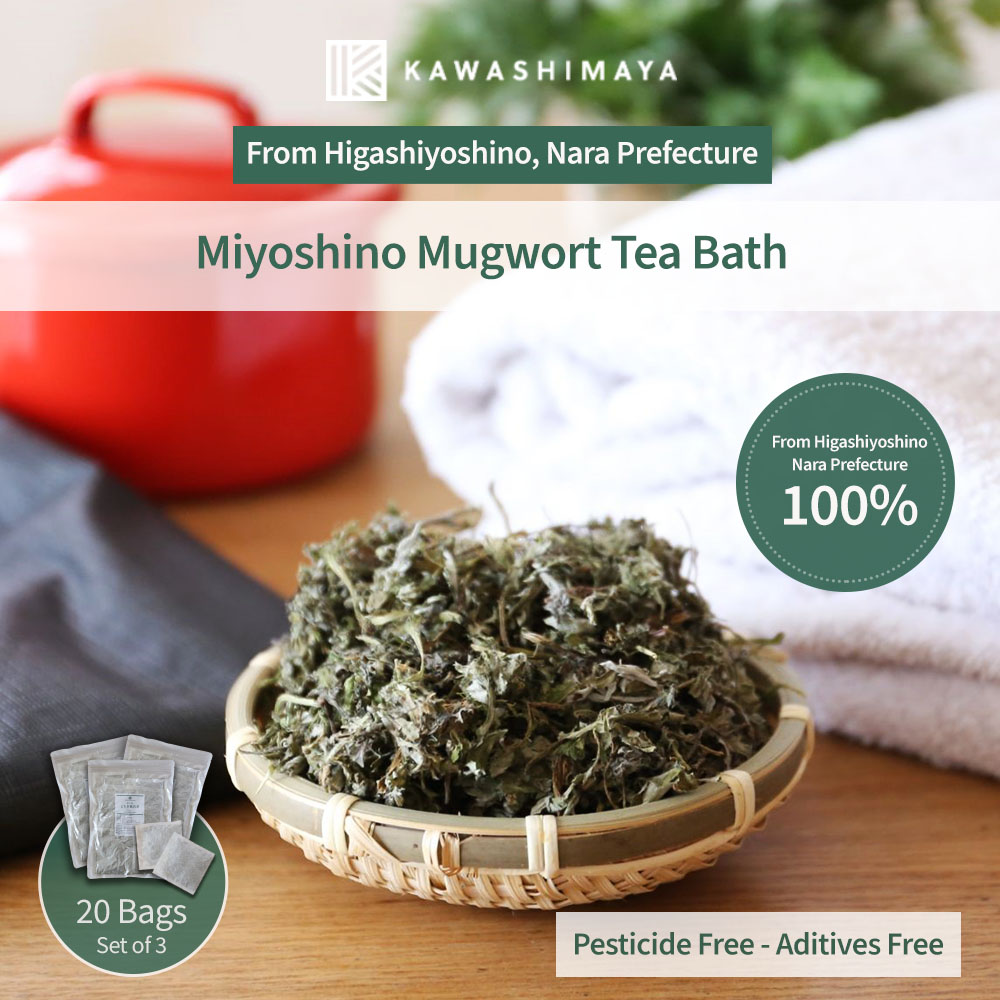![[Wholesale 60pc] Miyosino Mugwort Tea Bag 2.5g x 30 Teabags (Organic and Pesticide-Free Cultivation)](http://thejapanstore.jp/cdn/shop/files/a2197_100pc_eng_wholesale_800x.jpg?v=1717946983)
[Wholesale 60pc] Miyosino Mugwort Tea Bag 2.5g x 30 Teabags (Organic and Pesticide-Free Cultivation)
Out Of Stock
Product Details
| Product Name | Miyosino Mugwort Tea Bag |
|---|---|
| MOQ |
60pc Price is negotiable for bigger quantities. Please contact us for more information. |
Producing Area | Higashifuka Yoshino City, Nara Prefecture |
| Nett. Weight | 75g (2.5g x 30 teabags) x 60pc |
| Product Weight In Total | 7kg |
| Raw Material | 100% mugwort from Nara prefecture |
| Expiry Date | 1 year from the manufacture date |
| Storage Guide | Store away from direct sunlight, high temperatures and humidity. |

Wholesale Miyosino Mugwort Tea Bag
This product is the wholesale bulk item containing 60pc of Miyosino Mugwort Tea Bag 2.5g x 30 Bags. If you want to purchase the single item version, you can go to the product page by clicking here.
This is a preorder item, therefore it might take more time to prepare than regular ready-stock orders. Thank you for your understanding.
Miyosino Mugwort Teabags
(Pesticide-Free Cultivation)
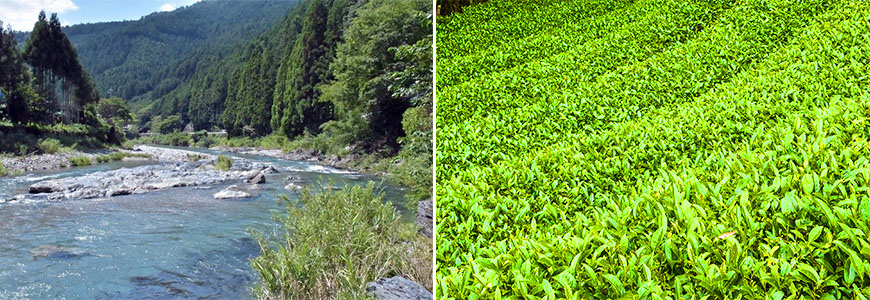
Surrounded by deep mountains and blessed with the climate of Higashiyoshino, which has a clear river, it is an organic and pesticide-free mugwort that has been carefully and wholeheartedly cultivated.
The Story of Miyosino Mugwort
Mugwort has strong vitality and is highly effective in supporting people's lives just by drinking, eating, bathing, and enjoying its scent. You can also make kusa mochi from the mugwort’s young leave, or moxa for moxibustion which can lower the incidence of breech presentations at birth.
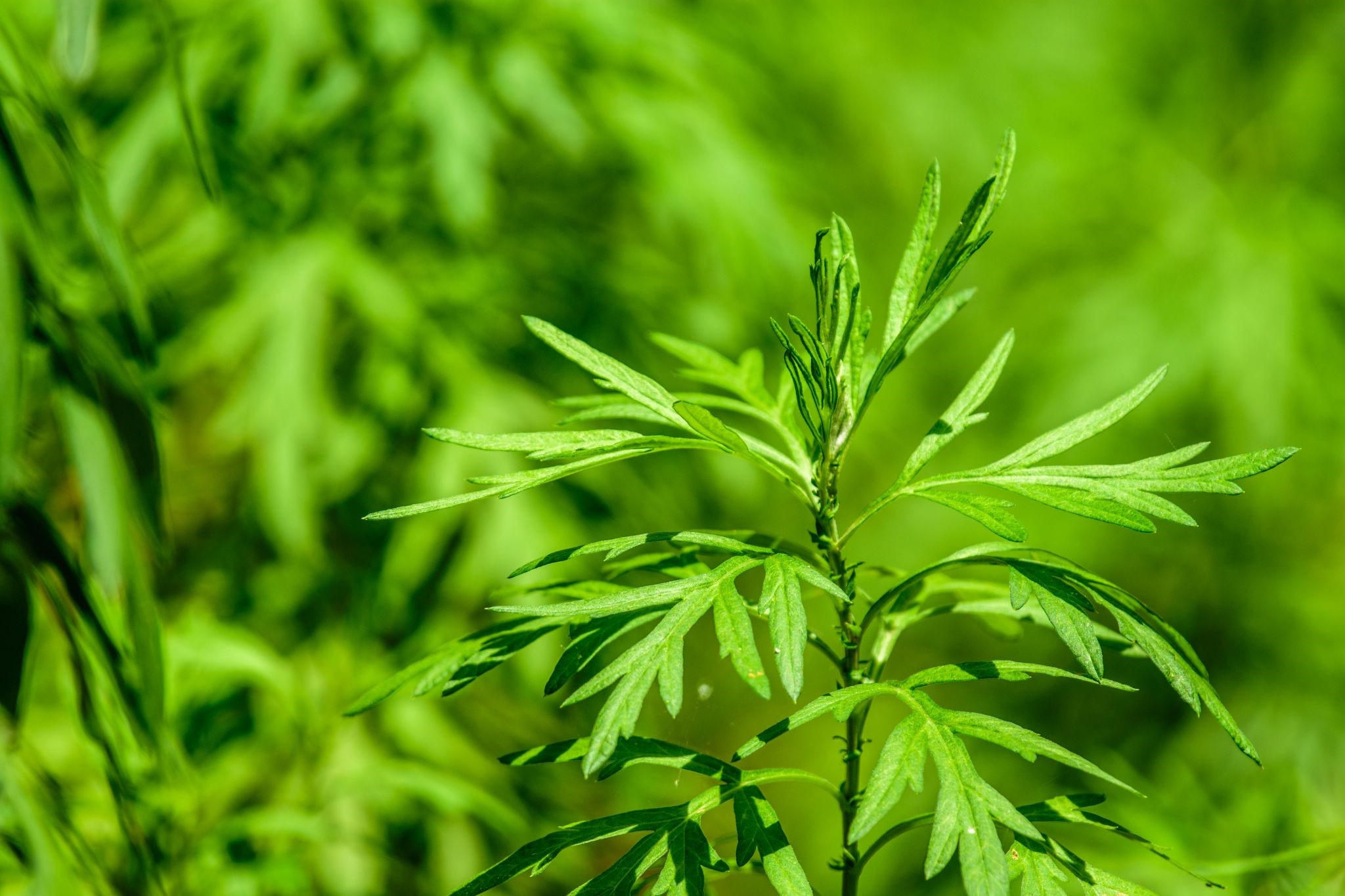
There is a legend about Kobo Daishi, the most famous monk in Japanese history. This legend indicates that Miyosino mugwort has been incorporated into people's lives, incredibly, since a long time ago.
"Because the mugwort in Higashiyoshino was delicious, Kobo Daishi made it possible to eat it without removing the lye. Delicious mugwort can now be eaten from Higashiyoshino without removing the lye. "
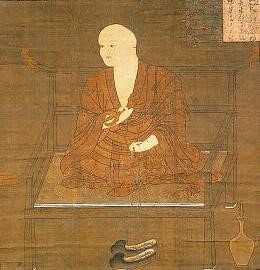
Non-caffeine Mugwort, Safe with many Health Benefits
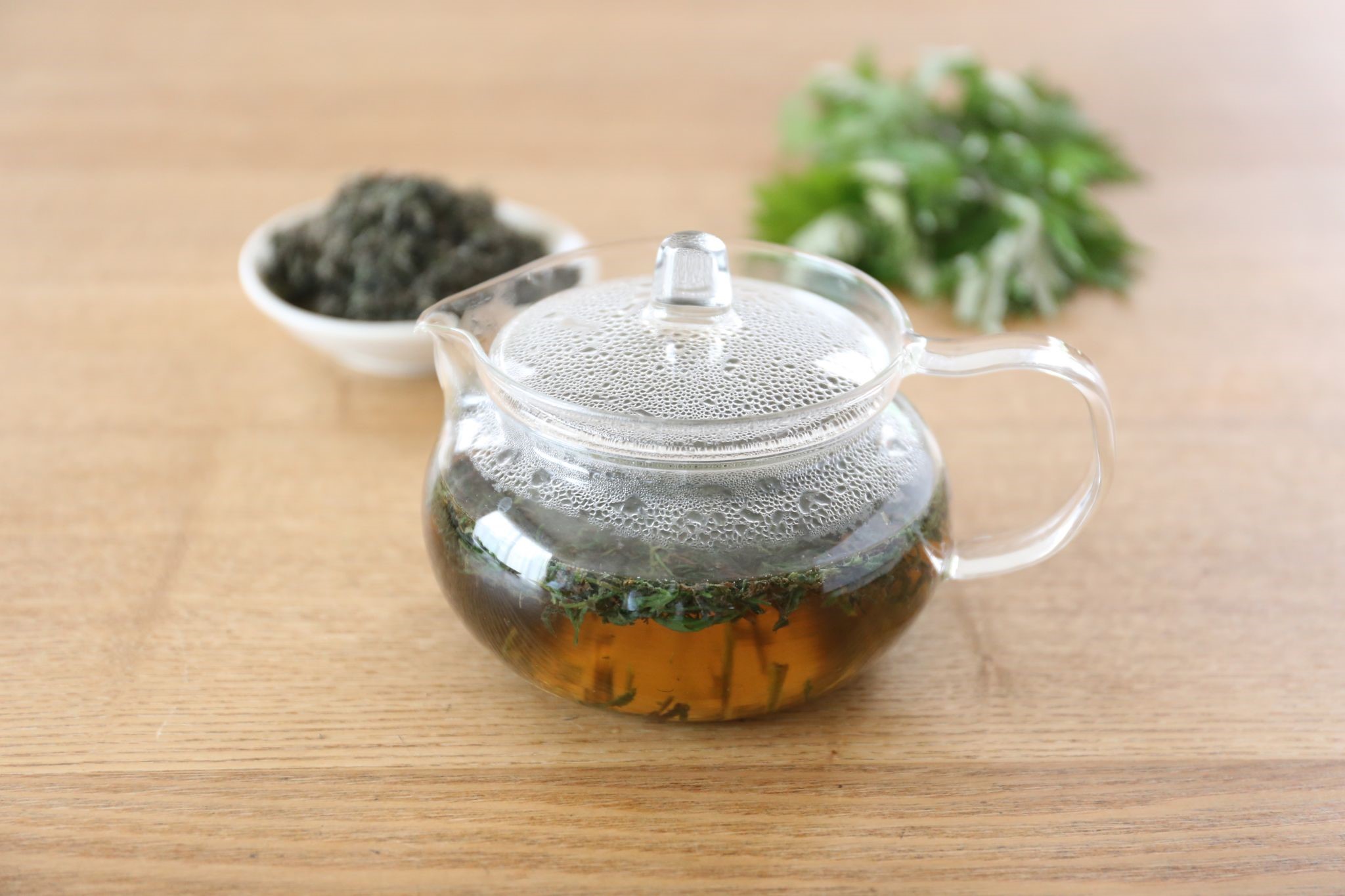
Mugwort is also known as an analgesic herbal medicine called gaiyo.
The letter 艾 in Mugwort Japanese name, Yomogi has a meaning of "to disappear”, it means that mugwort is a leaf that can eliminate disorders.
As the name implies, Mugwort is a medicinal herb with a lot of health benefits. Since it is also non-caffeine, Mugwort is kind to your body and can be safely consumed by pregnant women and children.
Warming Your Body

Mugwort is called to be a "warm" plant. We recommend mugwort for those who have cold sensitivity, who feel functional loss, and who are suffering from physical disease peculiar to women to enhances the barrier power your body originally has.
As it warms from the core of the body, it relieves tension in the body and mind. Improves your body’s barrier power with the warmth effect of mugwort.
Antioxidant Power
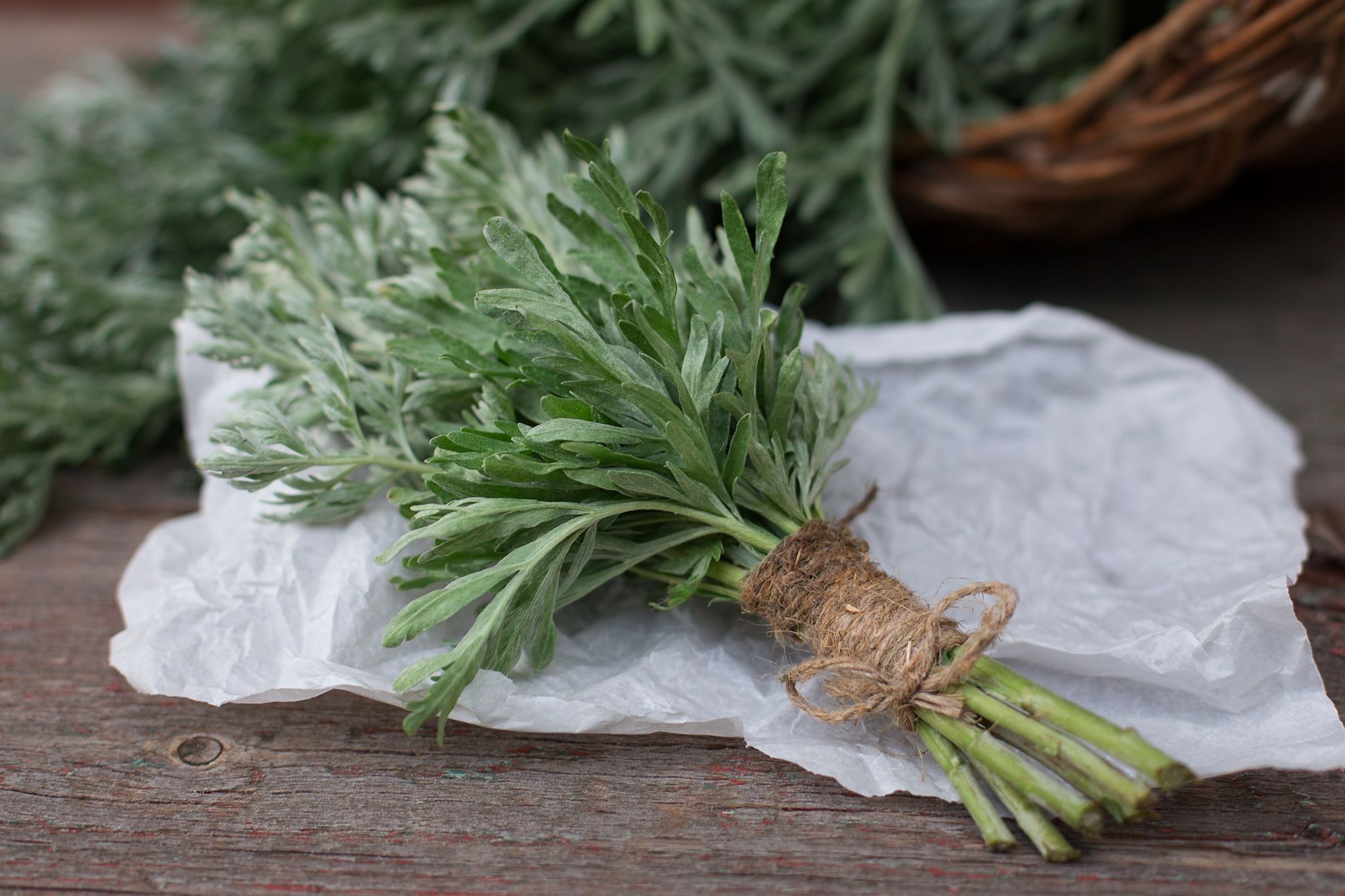
The antioxidant power of mugwort is about 100 times of broccoli, which is the highest in the reactive oxygen species (ROS) removal ability test that examined 200 kinds of vegetables and wild plants.
Polyphenols in Mugwort is comparable to high-quality and powerful chlorophyll in commercially available healthy tea, or beta-carotene in pumpkin.

If you use mugwort as a tea for bathing, you can easily absorb abundant nutrients through the skin.
Not only has a nice effect on skin-related problems, but it also helps to improve the condition of the body from the inside.
Nutritional Value of Mugwort
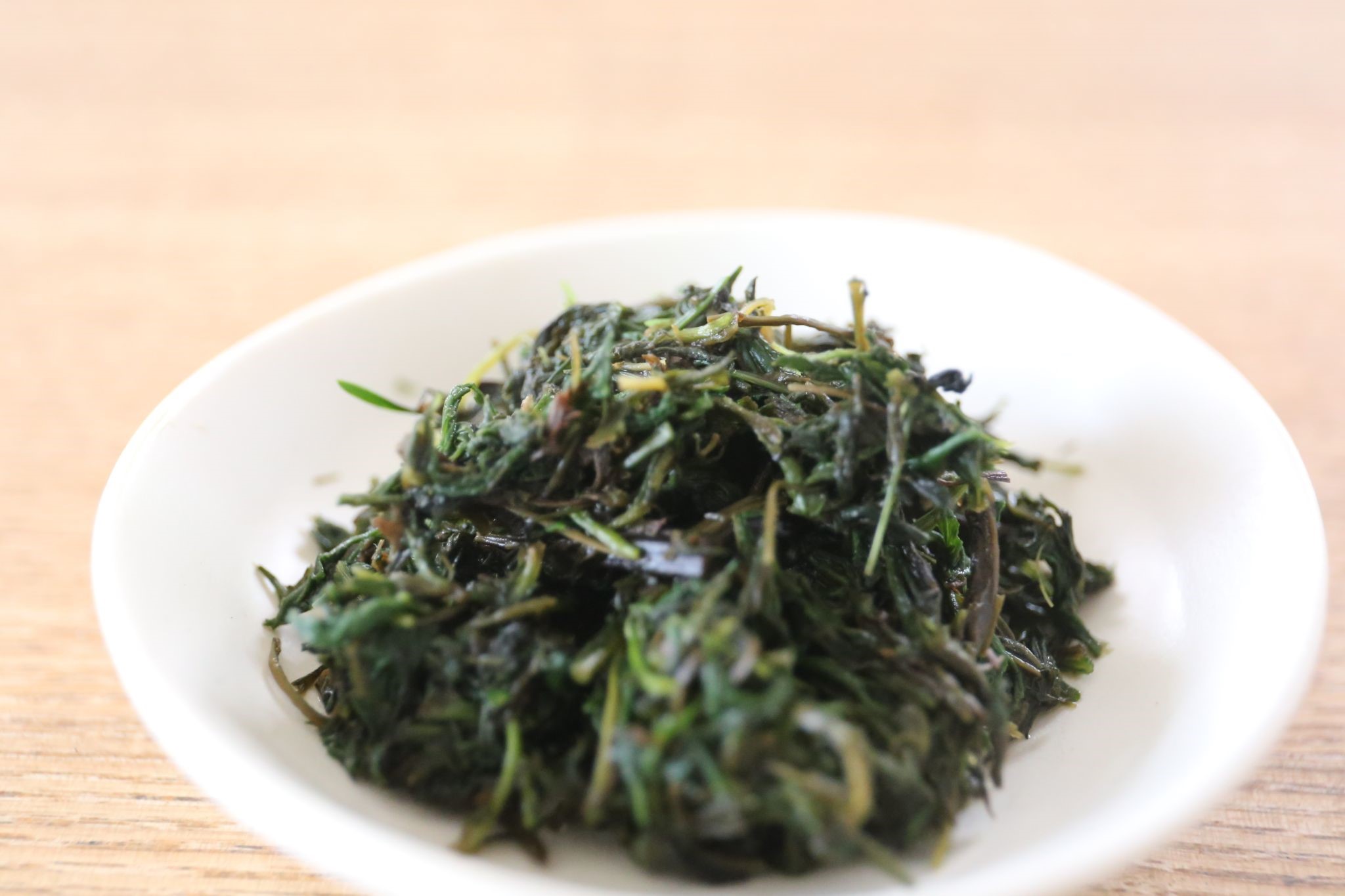
Mugwort’s content of dietary fiber is higher than burdock, millet, and vegetable salad. It can also helps with your stomach and intestinal problem and used to stimulate gastric juice.
You can check the comparison of Mugwort’s dietary fiber per 100g with other vegetables in the graphic below:
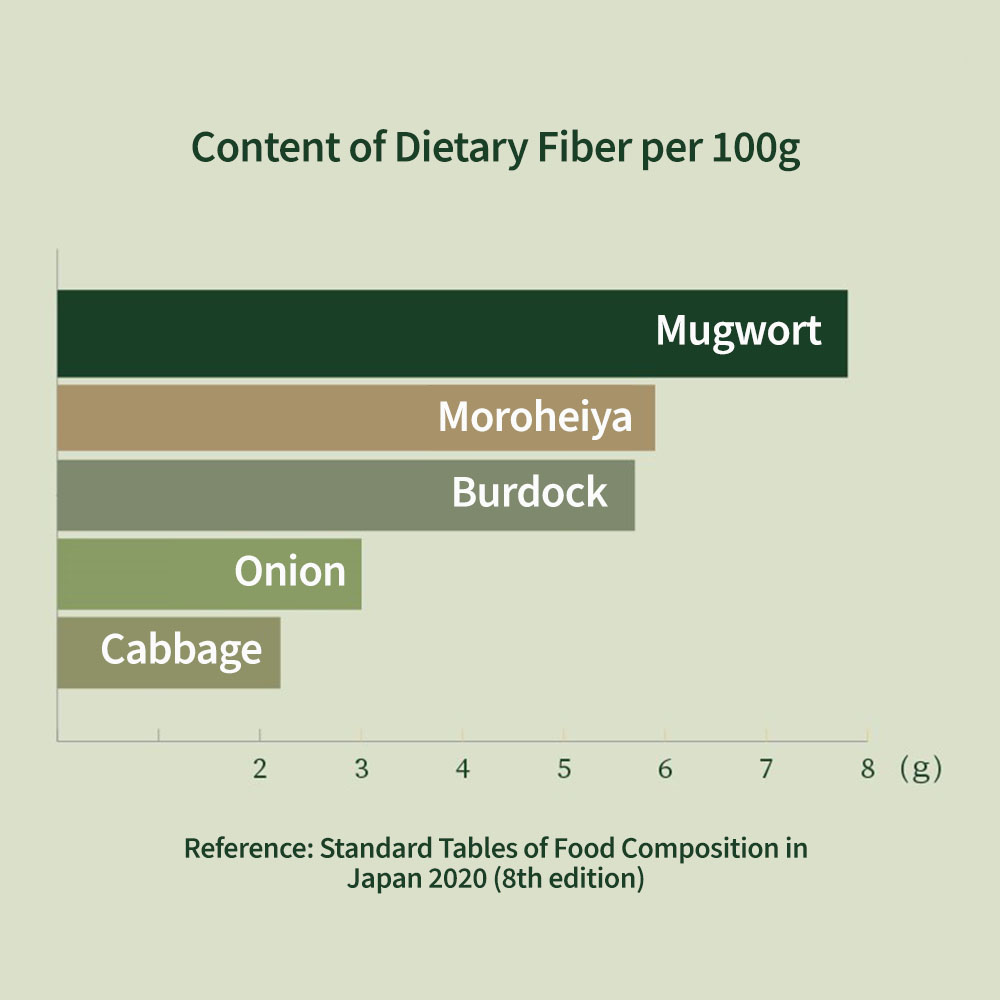
What Does Mugwort Taste Like?
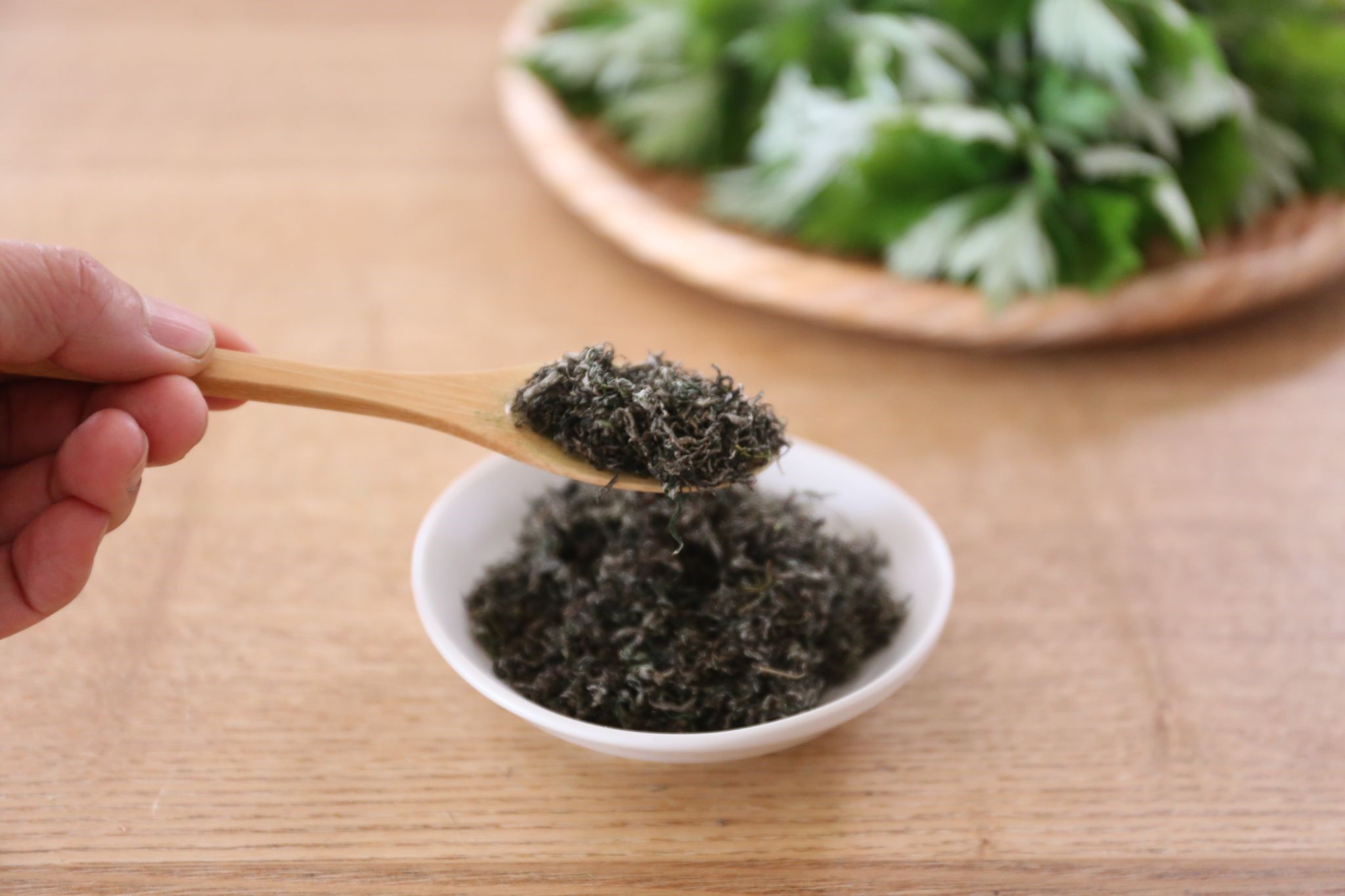
With a fragrant scent like kusa mochi, there is a little bitterness and sweetness in the clear flavor. Mugwort has a refreshing taste like herbal tea.
Commitment to Manufacturing Method
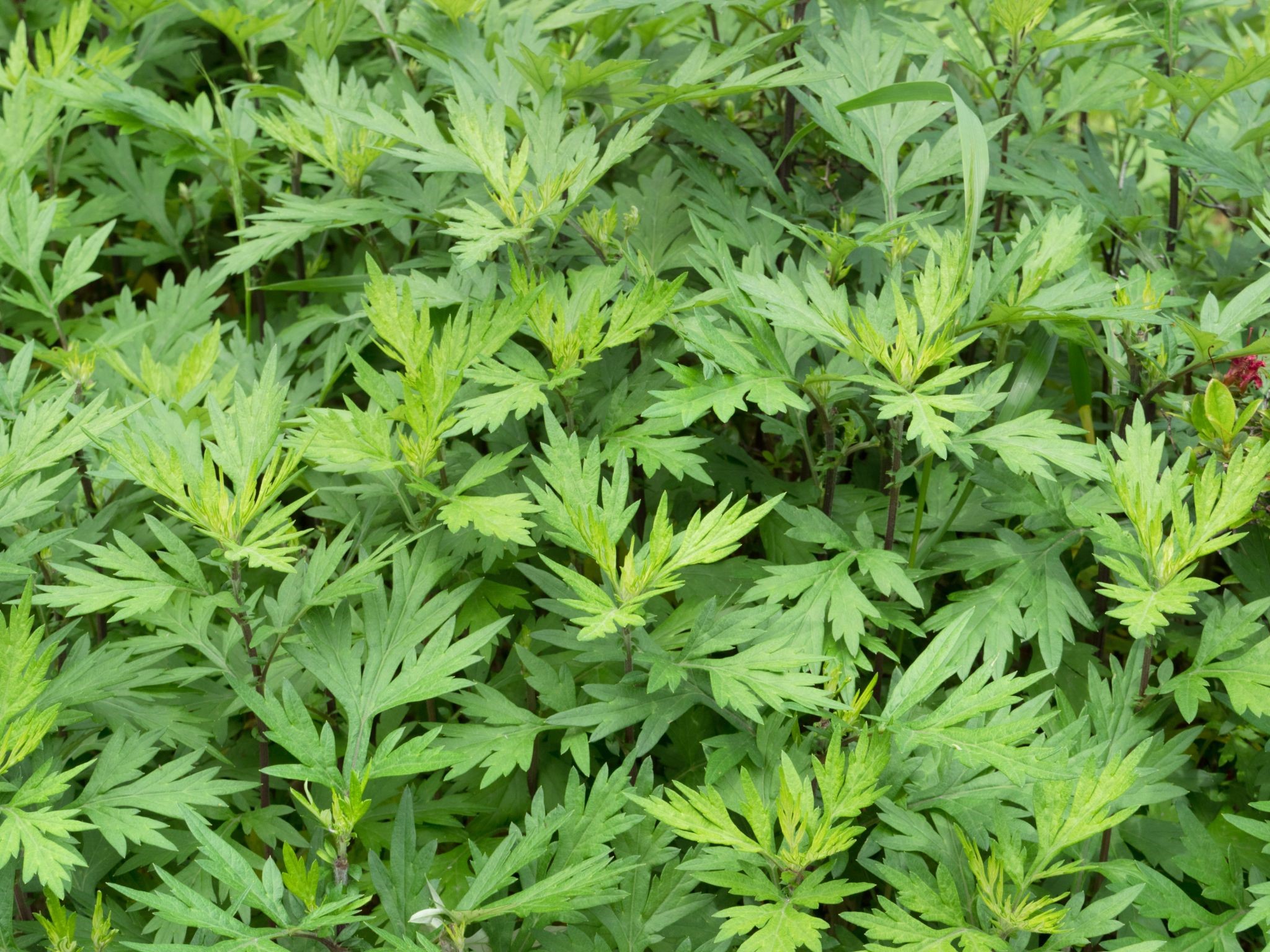
Higashi Yoshino is known as a place that is blessed with clear air and water in Nara Prefecture. The manufacturer commits to use 100% raw ingredients from Miyosino.
The mugwort is carefully grown organically, without pesticide, without chemical fertilizer, so it generates a refreshing scent.
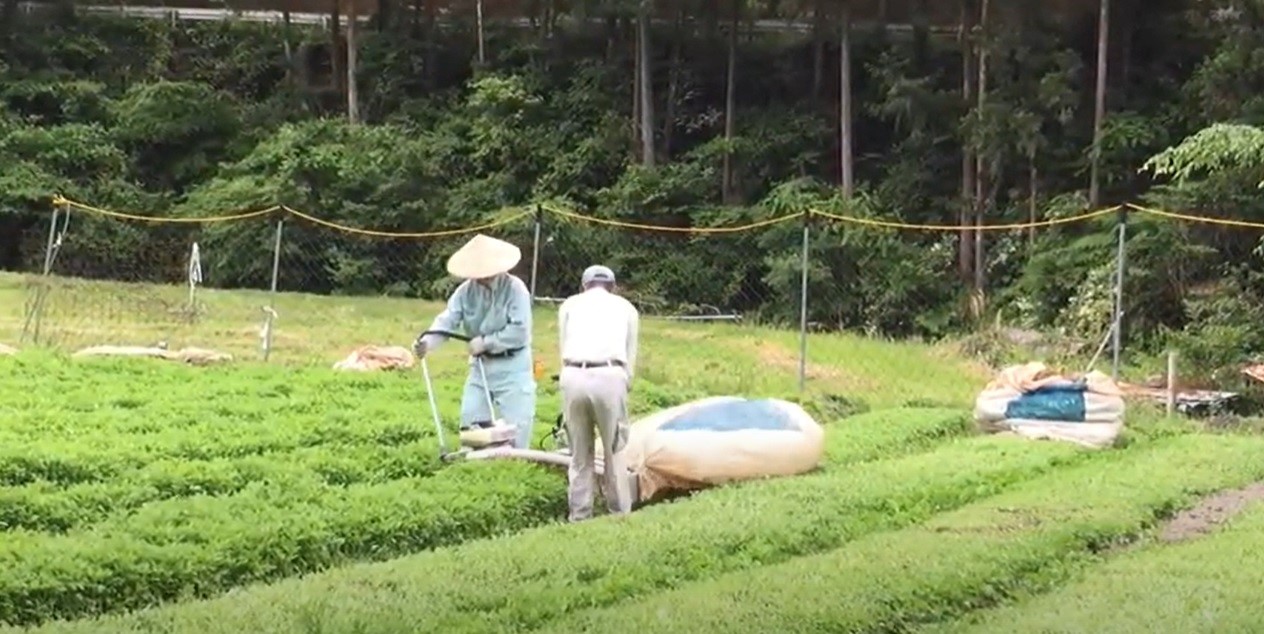
Only soft mugwort with vitality is harvested from April to early May and dried after careful treatment without any additives. A pack of dried leaves that captures the refreshing scent of mugwort.
Here is how our Miyosino mugwort has been made:
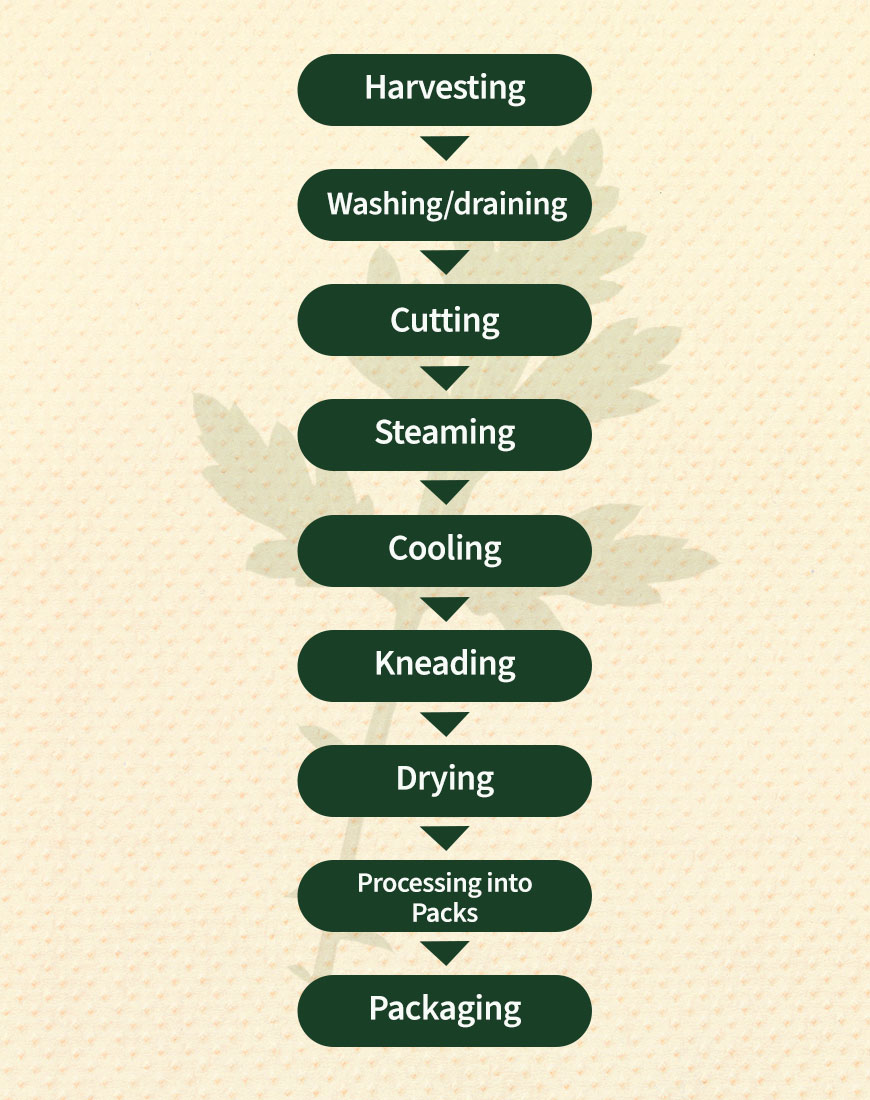
Message from Manufacturer
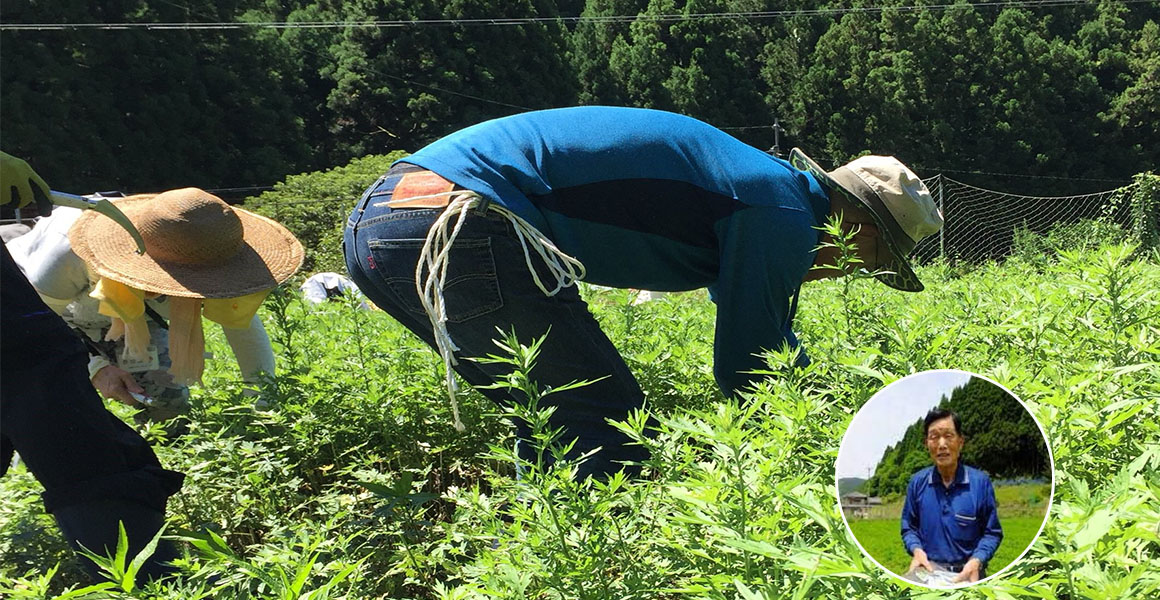
"We are happy to grow mugwort and stay healthy. We would like to increase the number of mugwort producers and the number of people who grow mugwort in Japan to keep maintaining our health."
In 1998, the Miyosino Mugwort Processing Association, which consists of 10 people from the region, was established under the concept of "For healthy Muranaka" to cultivate mugwort by making the best use of the fallow fields.
How to Use Mugwort Teabags
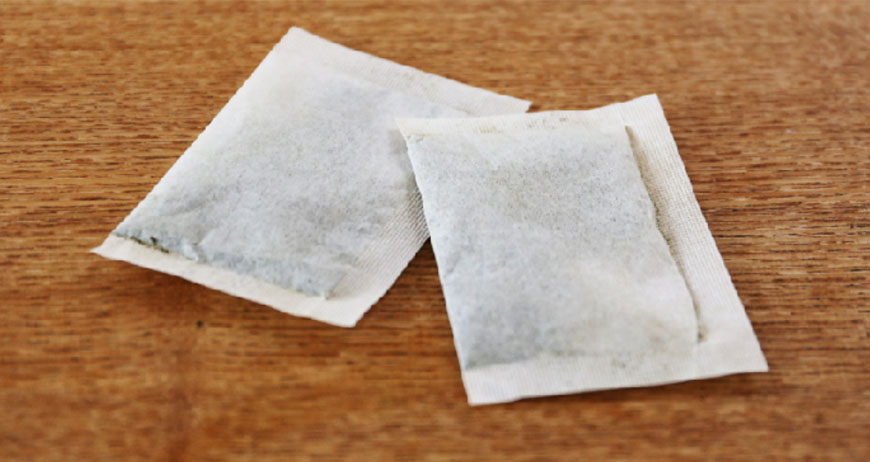
To enjoy mugwort tea, you can lightly or deeply brew the teabag. You can even enjoy it with ice depends on your liking.
Lightly brew and use it as a regular tea beverage

- Boil 200cc of water.
- Put a teabag of mugwort tea in a cup and pour the hot water from step 1
- Wait 2-3 minutes for your mugwort tea to be ready for drink. * Avoid using iron pots as it may change the quality of nutrients in mugwort.
Deeply brew for thicker tea to enhance the efficacy
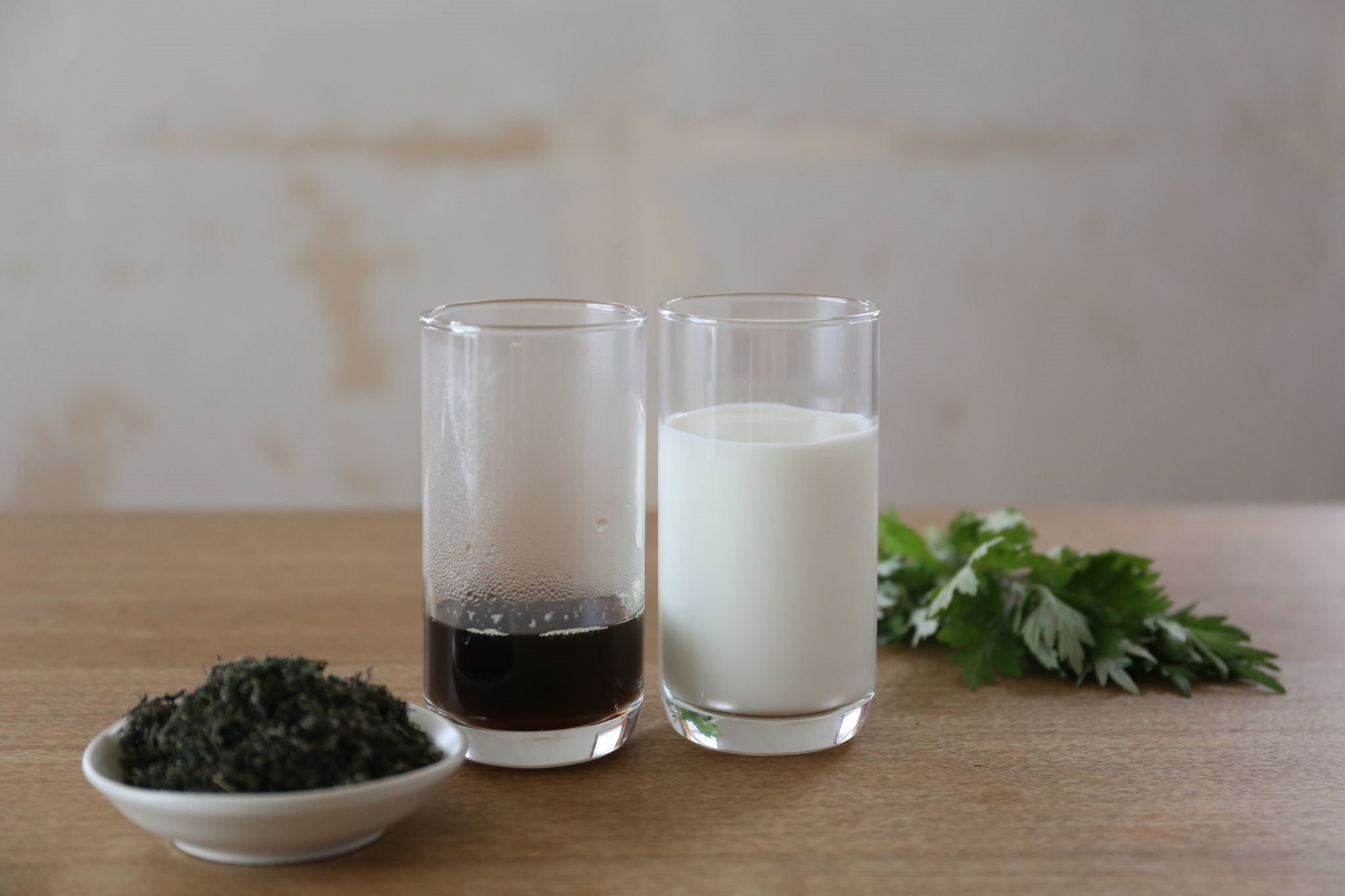
- Put 200cc of water for 1 teabag in a small pot and heat it to a boil.
- Boil the tea in half over low heat for another 10 minutes. * It is recommended to take a small amount in several divided doses, or if you are concerned about the bitterness, dilute it with milk or soy milk.
Enjoy as Ice Tea
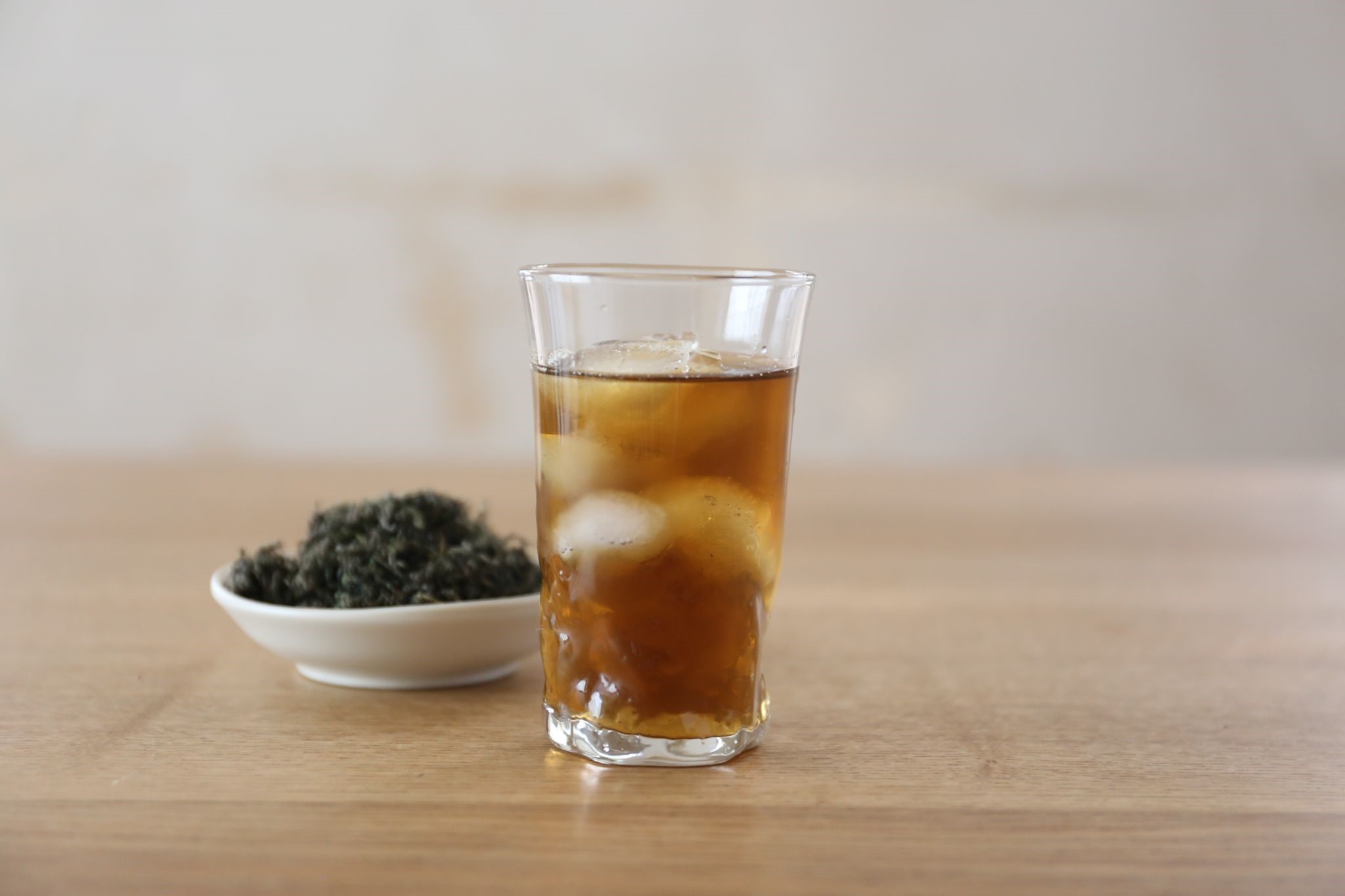
Cool the lightly brewed mugwort tea in the refrigerator for a while, or pour the deeply brewed mugwort tea into a heat-resistant glass filled with ice while it is still warm.
Delicious Recipes with Mugwort Tea
Takikomi Gohan with Mugwort
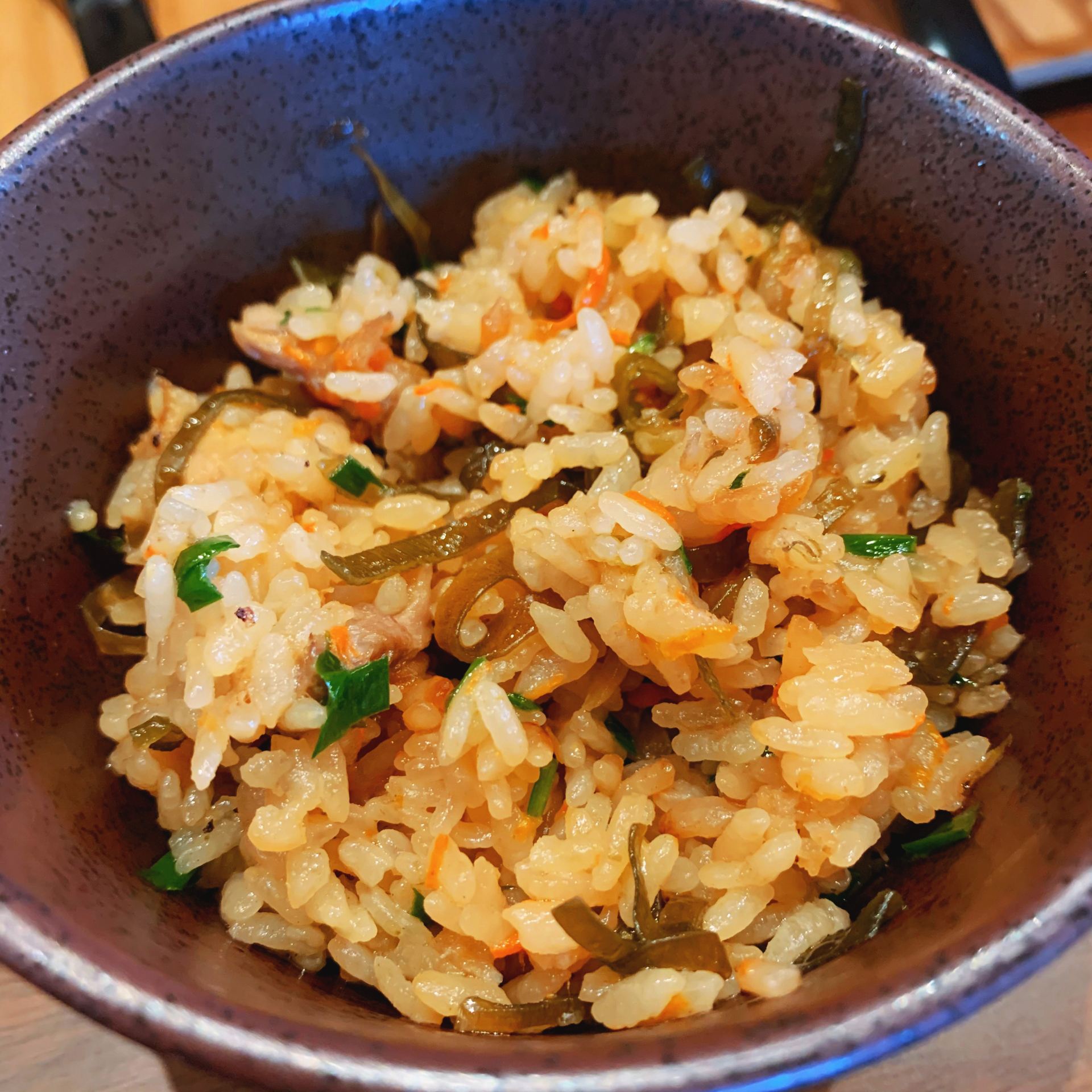
Ingredients
- ・Dried mugwort tea leaves
- 1 pinch
- ・Carrots
- an half
- ・Fried tofu
- 1/2 sheet
- ・Rice
- 0.36 liters
- ・Water
- A little less than 2 cups
- ・Soy sauce
- 1 tablespoon
- ・Sake (Japanese Liquor)
- 1/2 tablespoon
Preparation
- ・
- Wash the rice and soak it in water for 30 minutes.
- ・
- Soak the mugwort in hot water and drain it. Save the water.
- ・
- Peel the carrots.
- ・
- For fried tofu, pour boiling water over it to drain the oil.
Step by Step
- 1
- Finely chop the carrots, mugwort, and fried tofu.
- 2
- Put rice and seasonings in a rice cooker, add water with reconstituted mugwort tea leaves to the 2nd scale, mix, add chopped carrots, mugwort, and fried tofu, and cook rice as usual.
- 3
- Once cooked, it's done. Mix well before serving.
You can also drain the mugwort tea leaves that have been rehydrated with hot water, chop them into small pieces and put them in a soup roll, or roast them in a frying pan with white sesame seeds and dried bonito flakes to make a sprinkle.
It is known that 70% of the nutrients remain in the "degarashi (tea husks)" after boiling the tea. So we recommend you to chop the remaining mugwort tea and use them for cooking after brewed as a drink to fully enjoy it without waste.
If powdered, You can use mugwort to make Japanese sweets and bread.
You can also enjoy sweets with Mugwort fragrant by finely grinding with a mill or food processor.
Other Miyosino Mugwort Products


Organic and pesticide-free, with a good scent
I learned that mugwort tea is good for women's bodies, so I bought this organic and pesticide-free mugwort tea. I was worried about the smell, but turns out it is fine. I am satisfied with the ease of drinking the tea. ...(Female, 30s)

Mugwort's bitterness meets oily meal is refreshing. Expected to boost the physical strength
At first, I was a little worried about the bitterness, but after drinking it several times, I got used to it, and recently I'm getting more addicted to this bitterness. It is very refreshing to drink after eating an oily meal. Mugwort tea seems to be good for poor circulation, anemia, constipation, etc., so I hope that you can boost your physical strength by drinking it also....(Female, 40s)

The mugwort warms the body and helps to reduce risk of getting cold
Even in the summer, my limbs got cold in the air conditioner, and I was in trouble. When I started to consume warm boiled mugwort tea, I was less likely to get sick due to coldness, probably because my body was warm. I would like to continue to drink Mugwort tea. ...(Female, 40s)

Easily used for making bread and dumplings in powder form
I made the dried mugwort into powder with a food processor and mixed it with bread and dumplings. The scent of young mugwort leaves is refreshing and my family love it! ...(Female, 30s)
Why shop with KAWASHIMAYA?
- We sell only authentic and high-quality products
- 100% Made in Japan products are as listed
- Organic and non-GMO products are as listed
- All products are new and have long expiry date
- All products are handled directly from our warehouse in Tokyo, Japan
- Easy and secure payment options with CC or PayPal
- Safe and insured international shipping methods
- English and Japanese customer support by email
- Wholesale discount prices available for selected products
- Find insightful articles from KAWASHIMAYA Blog
- Get exclusive discounts for KAWASHIMAYA Newsletter subscribers
- Easy shop on KAWASHIMAYA Amazon USA

